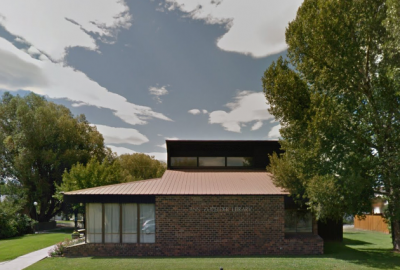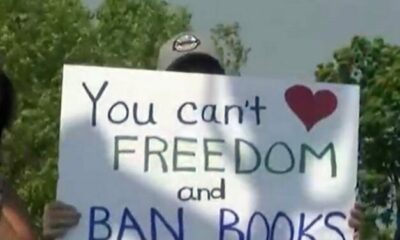Court Upholds Concealment of the Identities of those who ask for books to be banned
Well, it’s official. According to a new ruling by the Colorado Appeal’s Court, which is Colorado’s second-highest court, public libraries are not legally allowed to reveal the identities of people who request the removal of certain books. The case involved a situation that began in Gunnison County with the Gunnison County Public Library and the Executive Director of the Gunnison County Library District Andrew Brookhart.

Gunnison Library image courtesy of Gunnisonlibrary.org
“I haven’t had a chance to talk to my board or legal counsel and I need to do that before I can make any comment,” said Brookhart on Wednesday afternoon.
The case was decided 2 to 1 by a three-judge panel of the Court of Appeals. Unlike other cases around the nation that have involved requests to remove media and books related to themes such as race, systemic discrimination, gender, or LGBTQ topics, this case was related only to maintaining the confidentiality of the people who ask for books to be reconsidered or removed, from open records requests.
Seeking to be efficient and transparent, the Gunnison Public Library had created a form available to the public, that allows anyone to ask for a review of a book. That much isn’t in question and neither is the fact that the library and a person who requested a book to be removed objected to having their name revealed. The problem: that form brought the library under what is known as the “non-disclosure guarantee” in Colorado law.
Brookhart had asserted to the Court of Appeals that libraries should be allowed to share the identities of those seeking to influence the makeup of their collections. The Crested Butte News had submitted a Colorado Open records Request (CORA) asking for the information, instigating the case. But the panel’s majority rejected that concern, noting the request to ban materials itself is fully disclosable.

Photo credit, Ark Valley Voice.
“We perceive no persuasive argument that the library’s objective assessment of the requests or the public good would be enhanced by revealing the identity of the requesters,” wrote Judge Lino S. Lipinsky de Orlov for himself and Judge Timothy J. Schutz.
But the third judge in the case (Judge Daniel M. Taubman) didn’t just disagree — he concluded that the whole case should have been dismissed. He reasoned that because there wasn’t actually any disagreement about whether the requester’s name could be revealed, there wasn’t a problem to be resolved, writing “While whether certain books should be banned or their circulation restricted in public libraries is being litigated and debated across the country, that is not the issue presented here.”
Ark Valley Voice will return to this issue again when Brookhart is free to comment regarding the case, as well as the growing instances where certain books are being restricted and litigated in public libraries across the country.





Seems like a moot point to me. Just because someone requests a book to be removed from a library shelf doesn’t mean the library or library board needs to comply. I agree with the judge. There is no harm and who doesn’t matter.